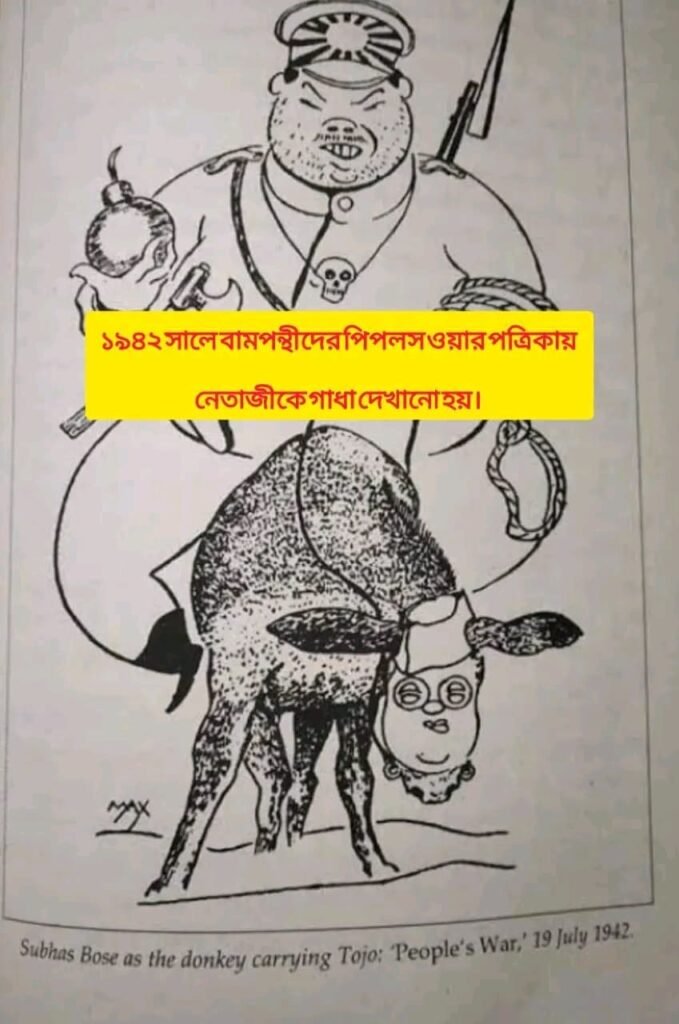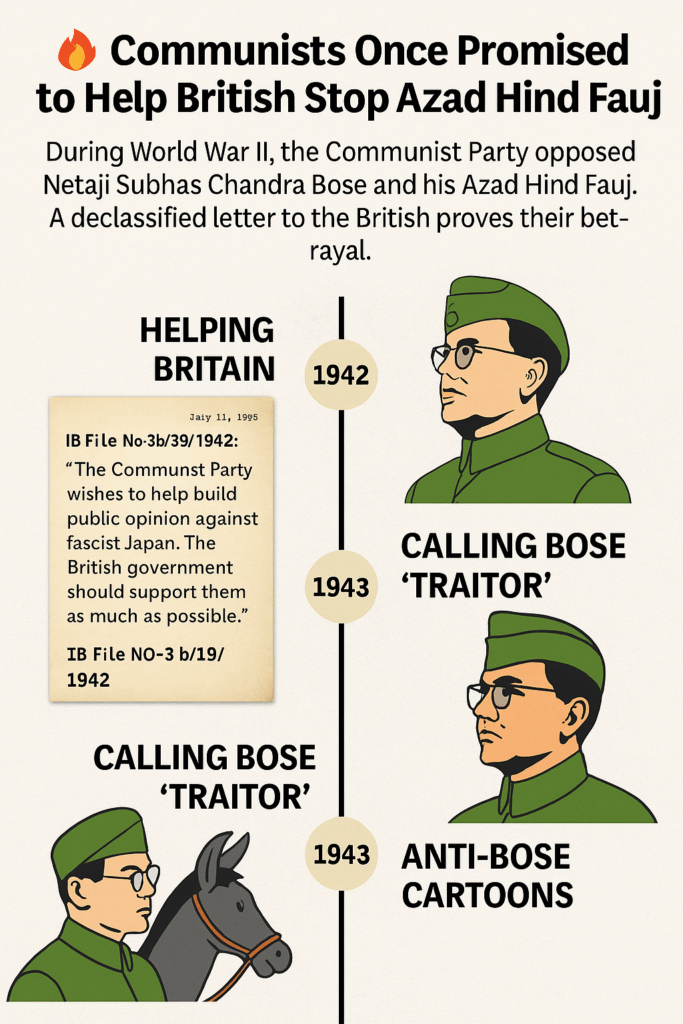During World War II, some communists leaders in India supported the British against Netaji’s Azad Hind Fauj. A letter proves it.
Shocking Truth from History: Communists Supported British Rule in 1942
During World War II, the Communist Party office in Kolkata’s 249D Bowbazar Street was active with some surprising decisions.
From this very office, a letter was written to British India’s then Home Secretary, Reginald Maxwell, by top Communist leaders.
This letter is still preserved in the government archives under IB File No. 3b/99/1942, Bengal Government.
What Did the Letter Say?
The letter stated that:
“Across Bengal, there is strong support for the fascist Japan. In such a situation, the Communist Party wants to help the British government and build public opinion against Japan. The British should support the Communist Party as much as possible.”
Leaders who signed this letter included Dharani Goswami, Abdul Halim, and Promode Dasgupta.
Now, here’s what readers need to understand — this so-called support against “fascist Japan” was actually support against Azad Hind Fauj.
Netaji Subhas Chandra Bose had allied with Japan to fight for India’s independence. So, indirectly, the Communists wanted to stop Bose’s freedom fight.
Why Did Communists Support the British?
After Communist Russia joined the Allies, Indian communists began supporting Britain and the US.
They even wrote songs supporting the Western powers:
“Comrades, take up arms, take up arms! In the freedom struggle, we are not alone. Revolutionary Soviet, mighty China, fearless America stand with us.”
Communist leaders like P.C. Joshi and Dange were released from jail after pledging support to the British.

Targeting Netaji Subhas Chandra Bose
Around this time, communists began mocking Netaji in their magazine People’s War.
They:
- Called him “Quisling”, a term meaning traitor.
- Published cartoons showing Netaji as a donkey.
- Even showed Japan’s Prime Minister leading Bose with a rope.
- Called Netaji “Tojo’s dog”, a huge insult during the freedom struggle.
Final Thoughts
This hidden chapter in Indian history shows how politics influenced the freedom movement.
While millions were inspired by Netaji’s bravery, some leaders chose alliances for ideology over independence.
History remembers everything — both sacrifices and betrayals.


